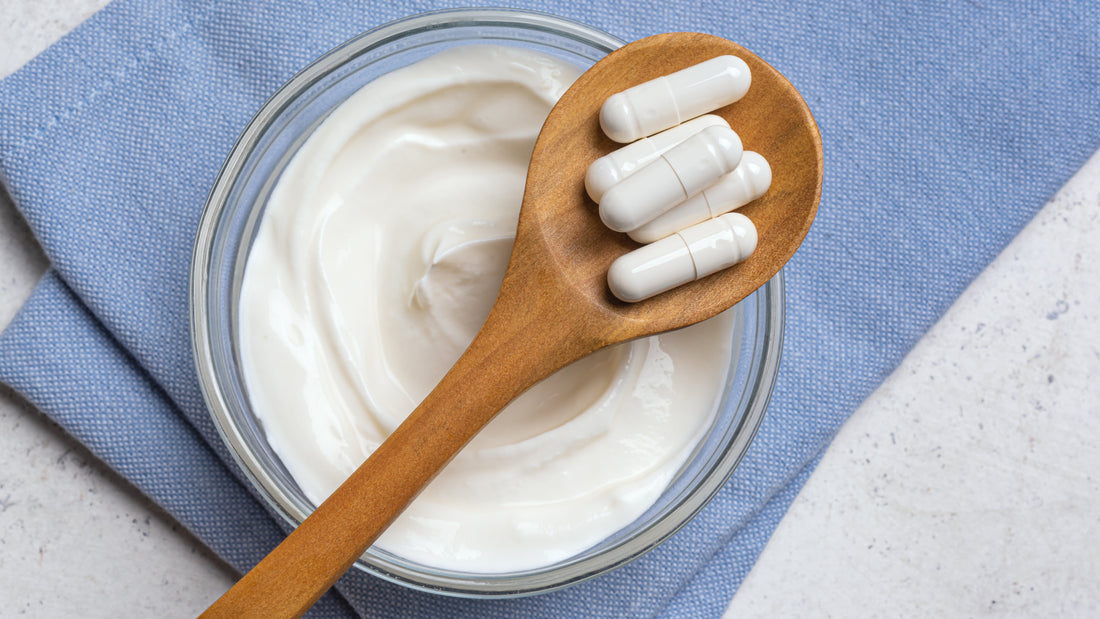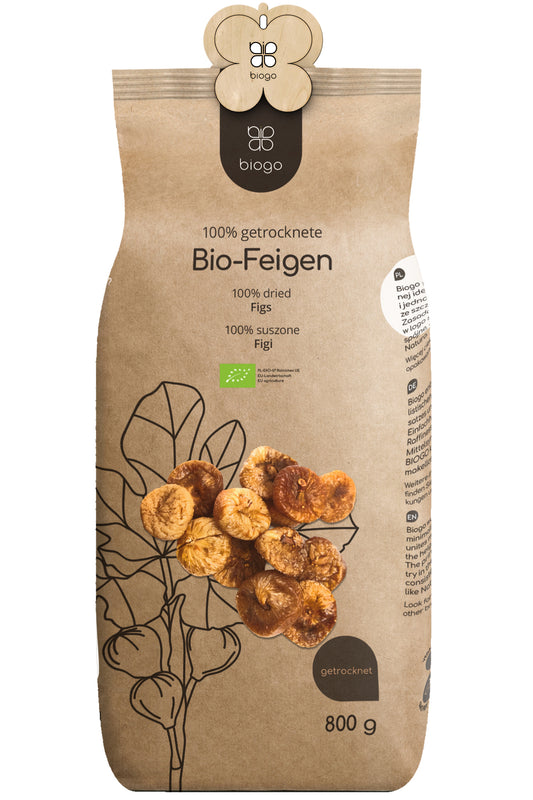Probiotics and prebiotics – how can you naturally support your gut microbiome?
Content:
- Natural sources of probiotics – how to integrate good bacteria into your daily diet?
- Prebiotics – food for bacteria that strengthen natural immunity
In recent years, we have heard more and more about the gut microbiome, which has gained the status of a "second brain" – and for good reason. It is responsible for a number of processes in our body, from digestion to immunity to mood regulation and cognitive functions. Increasing research shows that imbalances in the microbiome can affect not only digestion but also overall well-being and even the development of autoimmune or neurodegenerative diseases. For this reason, awareness is growing about the enormous importance of our diet for gut health – and thus the health of the entire body. A balanced diet based on unprocessed plant products, fermented delicacies, and fresh vegetables is one of the simplest and most effective ways to support the gut flora. And although probiotics and prebiotics are sometimes associated with dietary supplements, we can actually supply them successfully in a completely natural way – by choosing the right foods, which are also available in organic stores.
Natural sources of probiotics – how to integrate good bacteria into your daily diet?
Probiotics are living microorganisms that support gut function in adequate amounts. They help maintain microbiological balance, prevent the growth of harmful bacteria, and support immune system function. They are mainly found in fermented foods – not only in traditional pickles but also in modern plant products. Pickled cucumbers, cabbage, kimchi, beetroot sourdough, or kombucha are natural probiotic bombs worth eating daily, even in small amounts. Thanks to them, we support digestion, increase nutrient absorption, and relieve intestinal inflammation. People with lactose intolerance or vegan diets can turn to plant-based yogurts, which are increasingly enriched with live bacterial cultures. Their advantage is that they are gentle on the digestive system and available in a variety of flavors – from soy to coconut to almond. Probiotics work best when taken regularly – eating yogurt once a week is not enough. This daily practice helps rebuild and maintain a healthy gut flora, especially after antibiotic treatment, stressful periods, or a low-fiber diet.
In addition to fermented products, it is also important to combine them with suitable nutrients – prebiotics. Without them, good bacteria do not have optimal conditions for development. And here comes the second, equally important pillar of a healthy gut.
Prebiotics – food for bacteria that strengthen natural immunity
Prebiotics are ingredients that our body does not digest but provide an excellent food source for probiotics. These mainly include fructooligosaccharides, inulin, and other types of fiber found in natural plant products. Onions, garlic, leeks, artichokes, Jerusalem artichokes, chicory, bananas – these are just some of the vegetables and fruits that contain large amounts of prebiotics. Their presence in the diet influences not only the quality of the gut flora but also peristalsis, mineral absorption, short-chain fatty acid production, and overall immunity. Regular fiber consumption also supports metabolism and prevents constipation, which is one of the symptoms of a disturbed microbiome. Interestingly, prebiotics also affect the function of the gut-brain axis, which can result in improved mood and greater stress resistance.
An excellent source of prebiotics are natural foods available in organic stores – from fresh vegetables and fruits to legumes and whole grain products. Organic vegetables such as carrots, beetroot, parsley, or celery are not only rich in fiber but also in phytonutrients with anti-inflammatory and gut-protective effects. It is also worth turning to plant-based dairy substitutes – such as oat, almond, or coconut drinks – which are lactose-free, gentle on digestion, and often enriched with additional ingredients like calcium or vitamin B12. Whole grain groats, semolina noodles, or organic rice, in turn, are products that not only provide energy but also support the growth of beneficial gut bacteria thanks to their content of resistant starch. Including these ingredients in your daily diet is an investment in your long-term health – without having to resort to synthetic dietary supplements.
THE PUBLISHER'S CHOICE
Almonds 1 kg BIOGO
- €11,69
€13,75- €11,69
- Unit price
- / per
Peeled sunflower seeds 1 kg BIOGO
- €3,04
€3,57- €3,04
- Unit price
- / per
Dried organic mango 400 g BIOGO
- €10,99
- €10,99
- Unit price
- / per
Dried White Mulberries 500 g ORGANIC
- €5,84
€6,87- €5,84
- Unit price
- / per
Popcorn (corn kernels) organic 1 kg BIOGO
- €5,84
- €5,84
- Unit price
- / per
Organic Ground Turmeric 500 g BIOGO
- €5,92
- €5,92
- Unit price
- / per
Milk thistle seeds 1 kg BIOGO
- €3,99
- €3,99
- Unit price
- / per
Dried organic figs 800 g BIOGO
- €30,12
- €30,12
- Unit price
- / per
Organic cashew nuts 1 kg BIOGO
- €19,99
- €19,99
- Unit price
- / per
Unpeeled buckwheat groats 1 kg BIOGO
- €2,81
€3,31- €2,81
- Unit price
- / per







































































































































